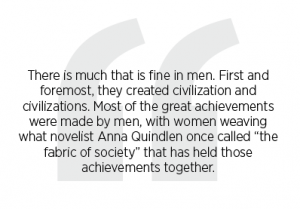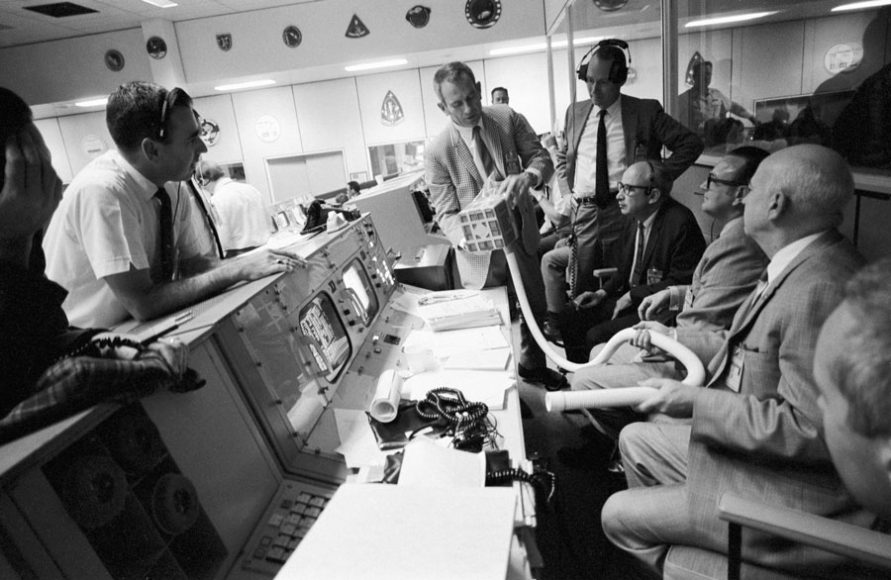In the 1952 film “High Noon,” Marshall Will Kane (Gary Cooper) is set to retire and begin a new life in another town when he learns an outlaw that he sent to prison is about to be released and bound with his gang for revenge.
Kane tries to enlist the help of his fellow lawmen and citizens to no avail. Even his Quaker bride (Grace Kelly) suggests that he flee. But Kane is firm in his belief that he must stand and deliver.
“They’re making me run,” he tells her. “I’ve never run from anybody before.”
In its day, the film was viewed as a metaphor for those who stood up to Sen. Joseph McCarthy’s anti-Communist witch hunt and the subsequent Hollywood blacklist of party members past and present. Today, however, it represents an idealized view of men celebrated in many westerns and war films — the strong, silent type whose incisive actions and modest words speak with moral authority.
This has not always been the case in our own times. The election of President Donald J. Trump and The New York Times’ exposé on the alleged sexual abuses of movie mogul Harvey Weinstein have spurred the Pussyhat, #MeToo and Time’s Up movements, in which men have found themselves angrily opposed by many of those who have birthed and, in a variety of ways, nurtured them — women. Those movements have in turn spawned a backlash — particularly post-Brett Kavanaugh’s elevation to the U.S. Supreme Court amid allegations that he attempted to rape Christine Blasey Ford when both were teenagers — that have some wondering if women’s righteous anger and quest for justice go too far and come too late.
Certainly, we would not want to deny the crossroads at which men find themselves. But neither would we want to treat them with the injustice that they have often visited on women.
There is much that is fine in men. First and foremost, they created civilization and civilizations. Most of the great achievements were made by men, with women weaving what novelist Anna Quindlen once called “the fabric of society” that has held those achievements together. That men did so on the backs and bones of other men, women and children, who were denied opportunities, must also be acknowledged, as must their impulse to destroy much of what they created, as successions of past civilizations illustrate. Today we find ourselves in a world in which creativity and destruction can no longer be thought of as mutually exclusive. What we create — chemically, biologically, geopolitically, digitally — can also destroy us.
 What is good in human nature, however, remains, and so it is with men. En route from Manhattan to our White Plains office recently, I found myself bottlenecked with others on a Grand Central Terminal platform, thanks to two older women who could not make it down the steps to our waiting train with their large suitcase.
What is good in human nature, however, remains, and so it is with men. En route from Manhattan to our White Plains office recently, I found myself bottlenecked with others on a Grand Central Terminal platform, thanks to two older women who could not make it down the steps to our waiting train with their large suitcase.
Suddenly, a younger, male stranger came up behind me, picked up the suitcase — with the two ladies now trailing — deposited it on the lower platform and took off.
The man’s behavior was typical of men at their best — kind, decisive, effective, with no need of thanks. I’ve always admired this in men and, particularly, in the male bosses I have worked for. Indeed, when I addressed a meeting of Professional Women of Westchester a while back, I told the (mostly) female audience that I thought there was much women can learn from men, not the least of which is to take more calculated risks, to be less perfectionistic.
“You have to put yourself out there,” developer Andy Todd says in my profile of him.
Men don’t sweat the small stuff, which is why they’re often fun. (Of course, you don’t tend to sweat the small stuff when you’re not the one primarily responsible for small children.) Men don’t take everything personally — including, the humorist Fran Lebowitz once observed, the aforementioned children. They compartmentalize — particularly their emotions. True, there are contexts in which these would not be sterling qualities, because context drives perception. But there are also times when we need to separate our emotions from the tasks at hand if we’re going to advance as human beings.
“We’re not going to go bouncing off the walls for 10 minutes, ’cause we’re just going to end up back here with the same problems,” Commander Jim Lovell (Tom Hanks) tells his squabbling crewmates in “Apollo 13,” the 1995 film about the “successful failure” of the aborted 1970 moon landing. Meanwhile on the ground, NASA’s lead flight director Gene Kranz (Ed Harris) tells his tense troops, “Let’s work the problem, people.” To me, this story crystallizes the commanding leadership that men have often exemplified.
Now men find themselves increasingly sharing this leadership, this power, with women in a time of transition and technological revolution in which the fault lines are thrown into sharp relief — white and nonwhite; native and immigrant; conservative and liberal; red and blue; Republican and Democrat; nationalist and globalist; and, especially, men and women, even though some today are challenging whether we must limit ourselves to two genders, or define ourselves by any gender at all.
So how do we navigate these divides?
The answer may lie in an idea whose fragility has some pundits worried nowadays — community. Both The New York Times’ columnist David Brooks and Sen. Ben Sasse, a Republican out of Nebraska and author of “Them: Why We Hate Each Other and How to Heal,” have written about the breakdown of communities in the digital age. But communities are still intact. People still attend houses of worship. Families and friends have just enjoyed the holidays together. The Boys & Girls Clubs of America — and countless other nonprofits as well as businesses — aren’t going anywhere.
Men and women live and work side by side. In so doing, men could listen to women more and take their grievances more seriously. They could learn from women how to collaborate and multitask to get things done, how to be more patient and pay more attention to detail.
We are in a time of transition, but as President Franklin D. Roosevelt noted during his fourth inaugural address with World War II flickering and the Cold War heating up: “The great fact to remember is that the trend of civilization itself is forever upward” — even if that progress is at times zigzag.





